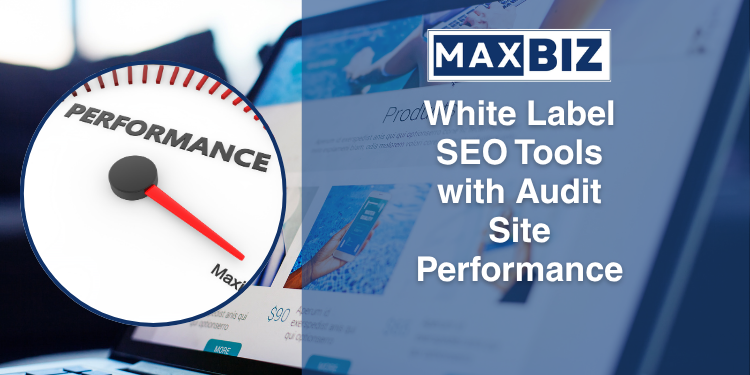Struggling to lift your website’s rank? White label SEO audit tools can help. This article shows how these tools boost your site’s performance. Let’s get started.

Key Takeaways
- White label SEO tools let you add your brand to reports. This makes your work look more professional.
- You can customise these tools with logos and colours. They also offer different report templates.
- These tools have features like automated reporting and backlink checks. They support many languages too.
- Choosing the right tool means looking at how much it can do. Check if it can grow with your business.
- Training is important for using these tools well. Make sure both your team and clients know how to use them.
Benefits of Using White Label SEO Tools
White label SEO tools let you add your brand to professional reports. This boosts your agency’s image and trust with clients.
Customisation and Branding Options
With white label SEO tools, you can add your logo, company colours, and details to reports. This makes the reports look like they were made by your business. You get three report templates at first.
Later, you can upgrade to six templates if needed. You can also change fonts, colours, and text in these reports.
You have options to choose what checks and sections go into each report. This means each report can fit exactly what you or your clients need. Changing report fonts, colours, introductory text is easy too.
With these tools, every report feels personal and branded for your business.
Integration with Your Existing Services
White label SEO tools can easily fit with the services you already offer. They help in managing leads and integrating with CRM through web hook and Zapier integration. This makes work smoother for both you and your clients.
You can track up to 100 keywords, with an option to increase this to 250 if needed.
Backlink research lets you check up to 50 site backlinks, which you can bump up to 150. Also, these tools watch over backlinks changes by email alerts. You can monitor three sites right off the bat, but there’s room to expand this to ten sites as your needs grow.
Simplify your SEO tasks by seamlessly integrating white label tools into your existing workflow.
Key Features of Top White Label SEO Tools
Top white label SEO tools come packed with powerful features. They include automated reporting and support for many languages, making them a great choice for improving website performance.

Automated Reporting
Automated reporting makes life easier. With it, you can set up to 10 reports every month. If needed, you can even increase this to 50. This means less time spent on making reports and more on other tasks.
The software supports many languages for reports. You can ask for more if needed.
This tool also checks competitor’s pages and finds the best keywords for you. It plans when to send out reports without you having to worry about it. For tasks, it gives advice and tips for different websites.
Plus, every week, it sends an email with all the updates on your work.
Multi-Language Support
After looking into automated reporting, it’s crucial to mention multi-language support. This feature helps your SEO tools reach more people around the world. These tools come in various languages like English, Danish, German, Spanish, and French.
You can even request more languages if you need them. This makes your reports accessible to a wider audience.
SEOptimer lets you embed audit tool forms on your site that can switch between multiple languages. This includes call-to-action buttons too. It’s great for companies working across different countries because it supports international SEO efforts with insights in whichever language you choose.
How to Choose the Right SEO Audit Tool
Choosing the right SEO audit tool is vital for your success. Focus on scalability and support to ensure it meets your needs as you grow.
Evaluating Scalability and Support
Evaluating scalability and support is crucial for choosing the right SEO audit tool. You want something that grows with your needs.
- Report Scheduling
Most tools allow up to 10 reports per month. You can upgrade to 50 reports as needed.
- Crawls Per Month
The SEO Crawler starts with 10 crawls a month across websites. This can be upgraded to 50 crawls for larger demands.
- Keyword Tracking Capacity
Keyword Tracking supports tracking of up to 100 keywords at first. If you need more, it can be expanded to track up to 250 keywords.
- Backlink Research Options
Backlink Research supports 50 site backlink lookups initially. You can upgrade this feature to handle up to 150 site backlinks.
- Support Availability
Check if the tool offers reliable customer support. Fast help means less downtime for your website.
- Customisation Flexibility
Your chosen tool should allow some customisation options. This helps align the tool with your brand’s needs and identity.
Assessing the Depth of SEO Insights

Understanding SEO insights is key for a successful website. Good tools provide detailed analysis to improve performance.
- On-page SEO Checks: Tools like SEOptimer check over 100 aspects in seconds. These include title tags, meta descriptions, header tags, and HTTPS compliance.
- Rankings Analysis: Knowing where your site ranks matters. This includes tracking keyword positions and changes over time.
- Backlink Analysis: Understanding your backlinks is crucial. Tools provide data on total backlinks, top links, and geographic details linked to your site.
- Usability Assessment: A good audit tool checks user experience factors, such as mobile viewports and page speed insights. Fast loading times keep visitors happy.
- Performance Evaluation: Evaluating how well your site performs can reveal areas for improvement. This includes checking for broken links and ensuring SSL certificates are active.
- Social Media Connections: Linking your website with social media can boost visibility. Tools assess these connections for better integration.
- Automated Reporting: Quick reports save time and effort. Automated features allow easy tracking of SEO progress without manual checks.
- Multi-Language Support: If aiming at a global audience, having support for multiple languages is vital to reach more users effectively.
Implementing White Label SEO Tools
Implementing white label SEO tools is easy. Set them up for smooth use across your team and clients.
Setting Up for Maximum Efficiency
Setting up white label SEO tools can enhance your workflow. This means getting the best results with less hassle.
- Schedule Reports
You can create up to 10 reports a month. If needed, you can upgrade this to 50 reports.
- Use SEO Crawler
The SEO Crawler allows for 10 crawls a month across websites. As with reports, this can also be upgraded to 50 crawls.
- Customise Audit Forms
Embeddable audit forms are great for branding. You can include call-to-action buttons to boost engagement.
- Access Report Templates
Start with three report templates for your audits. Upgrading gives access to six templates, allowing more options.
- Automate Processes
Automation saves time on reporting and data collection. Streamlining these tasks lets you focus on analysis instead of busy work.
- Train Your Team
Make sure your team understands how the tools work. Proper training leads to better use and faster results.
- Integrate Existing Services
Look at how these tools can fit into what you already use. Integration makes everything smoother and boosts performance.
- Monitor Performance
Regularly check how well the tools are working for you. Adjust settings as needed for maximum efficiency over time.
Training Your Team and Clients
Training is crucial for effective use of white label SEO tools. Both your team and clients need to understand how to utilise these tools well.

- Use Task & Progress Management: This feature gives task tips and guides for different content management systems (CMSs). It also sends weekly email digests to keep everyone informed.
- Manage User Access: The user management system allows three users, with an option to upgrade to six. This helps in maintaining control and monitoring usage.
- Leverage Comprehensive Documentation: SEOptimer offers extensive documentation for smooth implementation. This ensures that everyone knows how to get started and troubleshoot issues.
- Utilise Training Materials: Create guides that focus on customisation options, report generation, and integration features. These resources help in making the most out of the software.
- Conduct Regular Training Sessions: Schedule training sessions for your team and clients. Regular training keeps skills sharp and ensures everyone stays updated on new features.
- Encourage a Culture of Learning: Promote ongoing education around SEO practices and tool usage within your organisation. This strengthens skills across the board.
Next up is “Implementing White Label SEO Tools”.
What is a White Label SEO Report?
- Explanation of white label SEO reports and their purpose.
- Importance of branding and customisation for client presentation.
Why Should Marketing Agencies Use a White Label SEO Tool?
- Benefits for marketing agencies of using white label SEO tools.
- How these tools streamline SEO processes.
What Makes a White Label SEO Reporting Tool Effective?
- Key features of an effective white label SEO reporting tool.
- The role of automation, customisation, and user-friendly design.
How Does a White Label SEO Platform Enhance SEO Performance?
- Overview of the advantages of a white label SEO platform.
- Benefits in tracking SEO performance and providing actionable insights.
What is an SEO Analysis Tool and Why Is It Essential?
- Explanation of SEO analysis tools and their functionality.
- Importance of SEO analysis for identifying strengths and weaknesses.
The Benefits of an SEO Dashboard for Marketing Agencies
- How an SEO dashboard centralises metrics and simplifies reporting.
- Advantages of using an SEO dashboard for tracking client SEO performance.
The Role of Customisation in White Label SEO Reporting
- Customisation options in white label reporting tools.
- How customisation enhances brand presentation and client relationships.
Key SEO Reports: What to Include in Your White Label SEO Report
- Essential components of an SEO report and their relevance.
- Tips for creating comprehensive, actionable SEO reports.
How Can Google Analytics and Search Console Improve SEO Reports?
- Integrating Google Analytics and Google Search Console for enriched reports.
- Benefits of data-driven insights from Google’s tools.
Choosing the Best White Label SEO Audit Tool for Your Business
- Criteria for selecting a reliable white label SEO audit tool.
- How to assess the effectiveness and features of SEO audit tools.
1. What is a White Label SEO Report?
A white label SEO report is a professional report that provides insights into a client’s SEO performance, but with the branding of the marketing agency or SEO provider. These reports allow agencies to present detailed SEO metrics, insights, and actionable recommendations under their own branding, enhancing their professional image.
Importance of White Label SEO Reports for Marketing Agencies
For marketing agencies, presenting SEO reports under their own branding builds credibility and trust. By using white-label customisation, agencies can add their logo, colours, and other brand elements to the report, creating a cohesive presentation that aligns with their brand. This approach enables agencies to deliver insights without revealing third-party tools, allowing them to position themselves as an all-encompassing SEO service provider.
White label SEO reports also offer flexibility. Whether the report focuses on local SEO insights, keyword ranking performance, or a comprehensive website audit, customisation options make it easy for agencies to tailor the information to meet client needs.
2. Why Should Marketing Agencies Use a White Label SEO Tool?
For marketing agencies, white label SEO tools streamline SEO processes, allowing for efficient, consistent reporting without manual data entry or formatting. These tools also provide the necessary features for agencies to manage multiple clients, track keyword performance, and identify areas for improvement.
Benefits of Using White Label SEO Tools
- Streamlined Operations: White label SEO tools reduce the time spent on creating reports by automating the data collection and analysis processes. With features like automated updates, reporting tools pull information from multiple sources, simplifying the process of SEO analysis.
- Enhanced Client Value: By offering in-depth SEO reports and analysis, agencies can demonstrate value to clients, improving satisfaction and retention.
- Branding Control: With white-label customisation, marketing agencies can present branded reports to clients, strengthening their reputation and showcasing professionalism.
By using white label SEO software, agencies can scale their operations, providing high-quality SEO services to multiple clients while maintaining efficiency.
3. What Makes a White Label SEO Reporting Tool Effective?
An effective white label SEO reporting tool offers essential features that enable agencies to generate accurate, actionable reports for clients. This tool should be user-friendly, customisable, and capable of integrating various data sources.
Key Features of a White Label SEO Reporting Tool
- Customisation Options: A good white label SEO tool allows agencies to customise reports with their brand identity, including logos, colours, and footer information, enabling them to maintain a cohesive brand image.
- Automation Capabilities: Automating routine tasks, such as pulling data from Google Analytics or other analytics tools, saves time and reduces human error.
- Data Integration: The tool should support integration with popular SEO tools and metrics, such as Google Search Console, allowing agencies to provide a comprehensive view of SEO performance.
These features make white label SEO reporting tools indispensable for agencies looking to streamline their processes and improve the quality of their reports.
4. How Does a White Label SEO Platform Enhance SEO Performance?
A white label SEO platform is an all-in-one solution that combines various SEO tools, from keyword ranking to link building and site audits. These platforms provide agencies with a centralised dashboard for tracking SEO performance and implementing strategies across multiple campaigns.
Advantages of Using a White Label SEO Platform
- Centralised Data Management: With all metrics in one dashboard, agencies can monitor keyword ranking, backlink profiles, and on-page performance across multiple clients in one place.
- Actionable Insights: White label SEO platforms generate reports that highlight actionable areas for improvement, enabling agencies to respond quickly to performance issues.
- Comprehensive SEO Services: By utilising a white label SEO platform, agencies can offer a full suite of SEO services, from technical audits to link building, enhancing client satisfaction and retention.
For SEO agencies, a white label SEO platform not only simplifies day-to-day tasks but also improves the accuracy and effectiveness of their SEO efforts.
5. What is an SEO Analysis Tool and Why Is It Essential?
An SEO analysis tool provides insights into a website’s performance by identifying issues that affect SEO rankings. This tool can evaluate on-page factors, backlink quality, and keyword optimisation, helping agencies understand how well a website aligns with SEO best practices.
Importance of SEO Analysis
SEO analysis tools allow agencies to:
- Identify SEO Issues: Technical issues, such as broken links or slow loading speeds, can prevent a site from ranking well. SEO analysis tools highlight these issues for resolution.
- Optimise for Keyword Performance: By analysing keyword data, agencies can adjust their strategy to target high-impact terms and improve keyword ranking.
- Track SEO Progress: Regular analysis provides insights into how SEO efforts impact site performance, helping agencies refine strategies for better results.
With an SEO analysis tool, agencies can offer more targeted, data-driven SEO services that enhance their clients’ online visibility and drive traffic.
6. The Benefits of an SEO Dashboard for Marketing Agencies
An SEO dashboard provides real-time access to key SEO metrics, allowing marketing agencies to monitor client performance and make informed decisions. With a centralised dashboard, agencies can streamline their reporting processes and focus on delivering results.
Key Advantages of an SEO Dashboard
- Centralised Reporting: An SEO dashboard consolidates metrics such as keyword ranking, backlinks, and site traffic, providing a single view of SEO performance.
- Improved Client Communication: With shareable pdf reports or live access, clients can view their SEO progress, making it easier for agencies to build transparency and trust.
- Real-Time Updates: An SEO dashboard with real-time data enables agencies to respond quickly to changes, optimising their strategies as needed.
For marketing agencies, an SEO dashboard is an invaluable tool for tracking, reporting, and managing SEO performance across multiple campaigns.
7. The Role of Customisation in White Label SEO Reporting
Customisation is essential for agencies that want to provide a personalised experience for their clients. White label customisation allows agencies to add their branding and tailor SEO reports to reflect their brand identity and client needs.
Benefits of Customisation in SEO Reporting
- Enhances Client Trust: Custom-branded reports demonstrate professionalism, helping agencies establish credibility and trust with clients.
- Aligns with Client Needs: With customisation, agencies can modify reports to include only the metrics and data that are relevant to each client, making the reports more actionable.
- Improves Retention: Clients who receive reports that reflect their brand and specific goals are more likely to stay with the agency.
By focusing on white label customisation, agencies can deliver value-driven reports that resonate with clients and contribute to stronger business relationships.
8. Key SEO Reports: What to Include in Your White Label SEO Report
An effective white label SEO report includes all necessary metrics to help clients understand their SEO performance. These reports are typically presented in pdf format, offering a professional and accessible summary of SEO results.
Essential Components of an SEO Report
- Keyword Ranking Data: Tracking keyword performance helps agencies show clients how their SEO efforts translate into visibility for key search terms.
- Site Audit Results: A site audit identifies technical SEO issues and suggests improvements, making it an essential part of SEO reports.
- Backlink Analysis: By evaluating backlinks, agencies can highlight the quality and quantity of links, which impacts domain authority and ranking.
With these components, white label SEO reports provide a comprehensive overview of SEO progress, giving clients the insights they need to achieve long-term success.
9. How Can Google Analytics and Search Console Improve SEO Reports?
Integrating Google Analytics and Google Search Console data into SEO reports provides a deeper level of insight. These tools allow agencies to access detailed metrics on user behaviour, site performance, and keyword ranking, making reports more actionable.
Benefits of Google Analytics and Search Console
- User Behaviour Insights: Google Analytics offers data on user engagement, bounce rates, and traffic sources, helping agencies understand how users interact with their clients’ websites.
- Search Performance Metrics: Google Search Console shows which keywords drive traffic and highlights SEO issues, such as mobile usability problems.
- Enhanced SEO Analysis: With both tools, agencies can provide more accurate insights, helping clients make data-driven decisions.
Using data from Google Analytics and Google Search Console ensures that white label SEO reports are as comprehensive and informative as possible.
10. Choosing the Best White Label SEO Audit Tool for Your Business
Selecting the right SEO audit tool is critical for agencies looking to provide thorough, actionable insights. The best white label SEO audit tool should offer comprehensive analysis capabilities, a user-friendly interface, and customisation options for branding.
Criteria for Choosing an SEO Audit Tool
- Comprehensive Analysis: The tool should provide a detailed website audit covering technical, on-page, and off-page SEO aspects.
- Customisation Features: Look for white label customisation that allows for branded reports and tailored insights.
- Usability and Support: A reliable tool should be easy to use and offer customer support for troubleshooting and training.
With the right SEO audit tool, agencies can deliver high-quality audits that showcase their expertise and commitment to client success.
Summary: Key Takeaways for White Label SEO Success
- Use Customised White Label SEO Reports: Adding your branding to SEO reports builds credibility with clients.
- Leverage SEO Dashboards: Centralised dashboards simplify reporting and help monitor real-time SEO performance.
- Utilise SEO Analysis Tools: SEO analysis tools identify areas for improvement, helping agencies provide actionable insights.
- Integrate Google Analytics and Search Console: Data from these tools enhances the accuracy and relevance of SEO reports.
- Choose the Right SEO Audit Tool: A comprehensive white label SEO audit tool provides the necessary features for effective site audits and reporting.
White label SEO software empowers agencies to deliver professional, customised reports, manage SEO performance efficiently, and maintain strong client relationships. By choosing the right tools, agencies can enhance their service offerings, improve client satisfaction, and grow their business.
Conclusion
White label SEO audit tools can transform how you boost your website’s performance. They help create custom reports with your brand’s logo. This makes your client experience better and more professional.
With easy integration, they fit right into your existing services. Explore these tools today to grow your agency and enhance success!
FAQs
1. What are white label SEO audit tools?
White label SEO audit tools are software solutions that businesses can brand as their own. They help improve website performance by analysing various SEO factors.
2. How do these tools boost website performance?
These tools provide insights into issues like site speed, keyword usage, and backlink quality. By identifying problems, users can make changes to enhance overall performance.
3. Can I embed these SEO tools on my website?
Yes, many white label SEO audit tools offer embeddable options. This allows you to integrate the tool directly into your site for easy access by visitors.
4. Why should I choose the best embeddable SEO software?
Choosing top-quality software ensures accurate audits and reliable data—this leads to better decision-making and improved search engine rankings for your website.






